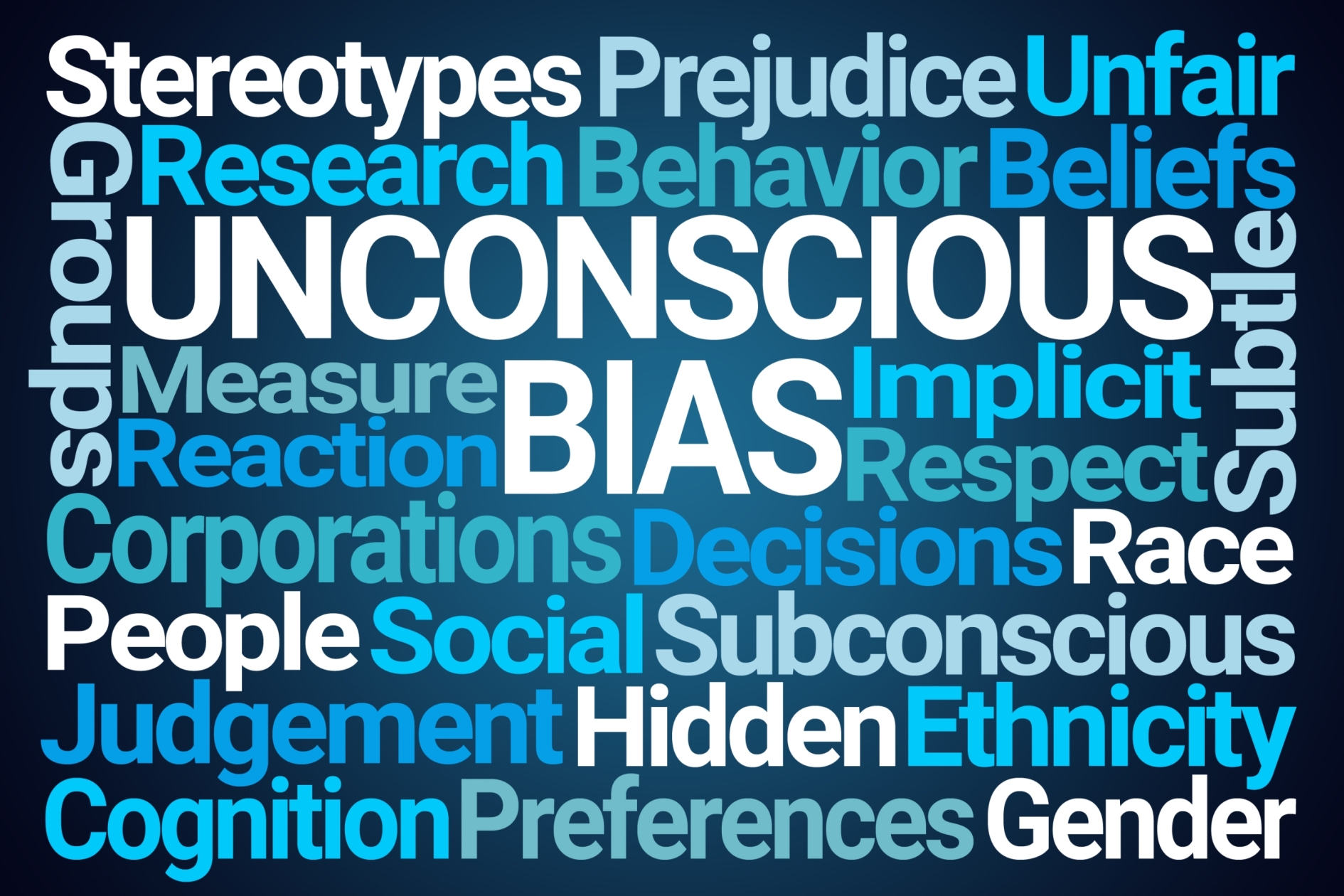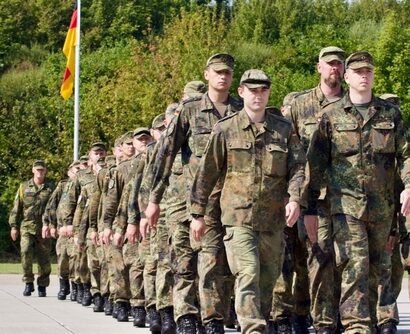Abstract: The so-called Russian denazification of Ukraine has brought up a question of fallacies related to ideology-driven political decisions. Ideologically driven political decision-making can result in various cognitive biases, as it mainly results in the world’s perceptions via ideological lenses, which do not always offer a precise picture. As a result, politicians believe that states would behave according to the theories rather than intelligence based on verifiable assessments. In other cases, leaders convinced themselves that if all neighbours accepted the vision of the Russian World, peace and prosperity would prevail; therefore, one must defend the Russian World with hard power. Replacing analysis for ideology has served as the backbone of the unilateral use of force by neoconservatives in the United States. At the same time, the recent Russian invasion of Ukraine proves that faulty narratives about one’s military preponderance can cause great powers to experience strategic failure.
Problem statement: How does the cognitive bias behind the overuse of ideology tend to magnify marginal threats, and why do superior militaries perform so poorly as a result?
Bottom-line-up-front: Cognitive biases allow leaders to justify their beliefs and transform them into action. As a result, great powers are at risk of experiencing greater strategic failures by lending themselves to cognitive biases.
So what?: States should omit the use of ideology instead of intelligence analysis of the situation on the ground. Otherwise, their foreign policy decisions will lead to the alienation of third parties not aligned with their ideologies and costly wars such as the ones in Vietnam (1955 – 1975), Afghanistan (1979 – 1989), Iraq (2003 – 2011), and Ukraine (2022 – present).

Source: shutterstock.com/Rob Wilson
Ideological Narratives In Political Decision-Making
The role of ideological narratives in political decision-making is not just the case of the contemporary so-called “denazification” of Ukraine or the visions of the Russian World. The Russian regional hegemony is based on the historical and cultural domination of Russian culture in post-Soviet/Imperial regions.
On the contrary, it is a common feature of more or less developed political cultures in which the political elite needs to persuade the public about the necessity of the forthcoming war. As the public pays taxes, citizens fight in wars and suffer the consequences; they must be convinced of the cause. Therefore, both democracies and autocratic (or authoritarian) regimes depend on public support. The opposite case is the so-called rally around the flag moment when political leaders seek hard-line stances to international crises to mobilise public support for their government. The problem arises when the elite fails properly analyse the risks of their military action while they invade foreign countries based on ideologically biased beliefs.
As the public pays taxes, citizens fight in wars and suffer the consequences; they must be convinced of the cause.
The ideological prepositions can translate into decision-making processes via a set of cognitive biases. Recent research in applied psychology and military decision-making shows that the decision-makers are prone to overconfidence, insensitivity to sample size, availability, illusionary correlation, retrievability of instances, escalation, break-even, snake bite, fear of regret, and confirmation bias.[1] Modern history illustrates several cases of leaders applying confirmation bias about the threats of much weaker opponents being capable of threatening the entire international order (Vietnam and the Second Gulf War), overconfidence in using too little force to achieve much greater operational goals (Afghanistan, the Second Gulf War, and Ukraine), fear of regret that one has missed the window of opportunity (Ukraine), and various alterations to confirmation biases about the inevitability of the future clash of the opposing sides, or evil nature of the alienated state and his malign intentions which require military intervention.
When Selling War Meets Strategy
In assessing the psychological aspects of decision-making, the role of ideology is crucially important. Ideology or religion is essential for politicians working with public opinion. One can date the influence of public opinion to the 17th century’s Thirty Years War and the Protestant Reformation when rulers fought for independence from the Catholic Church and the hegemony of the most powerful Catholic dynasty at the time – the Habsburgs. Between 1631 and 1634, Spanish Habsburgs struggled with the waves of rebellions called the Salt Tax Revolt.[2]At that time, people revolted against Spanish Habsburgs as they kept increasing the taxes to finance their costly wars.
One can date the influence of public opinion to the 17th century’s Thirty Years War and the Protestant Reformation when rulers fought for independence from the Catholic Church and the hegemony of the most powerful Catholic dynasty at the time – the Habsburgs.
The mid-19th century Crimean War represents a well-documented case of public opinion’s influence on the war. When the allied British, French, and Ottoman forces overwhelmed the Russians, British Prime Minister Lord Palmerstone had a unique opportunity to defeat Russia and knock them out of the balance of power. However, the news of high attrition rates and deadly diseases on the frontline resulted in public unrest, and Lord Aberdeen’s, Palmerstone’s predecessors, the cabinet had to step down.[3] A similar situation encountered French ruler Napoleon III, who refused to join British and Ottoman forces in the final campaign against Russia due to public dissatisfaction with the war. Therefore, the correlation between war-related political decisions and public support is not a recently discovered phenomenon.
In contrast, the public tends to rally around their national leadership in times of international crises.[4] Therefore one can find causality between the high popularity of politicians and the strong gestures of the nation, such as annexing territories or launching wars against “unlawful” enemies in what literature knows as the “rallying around the flag effect”. Dieuwertje Kuijpers characterizes the phenomenon as the tendency of increased public support for the incumbent in times of international crises. This effect is explained by feelings of patriotism incited by the mutual feeling of being under attack as a nation, leading to more positive opinions about the leadership.[5]
Furthermore, the high popularity can also result from intense communication campaigns launched by political leaders to shift public support towards hard-line solutions. For instance, “public attitudes in the US, Canada, Australia and Europe towards the use of military force were greatly shaped by the cohesiveness and content of the strategic narratives employed by national policy-makers.”[6]
Russian President Vladimir Putin and his approval ratings represent the contemporary case in point. According to the Levada Center data, currently the most credible polling agency in Russia, Presidents Putin’s approval ratings skyrocketed after the annexation of Crimea to his all-time high rating of 89 %. A similar dynamic occurred after the recognition of the Ukrainian breakaway Lugansk and Donetsk Republics and the invasion of Ukraine, when President Putin’s rating recovered from a declining trend at his past decade low of 59 % in May 2021 to 83 % in August 2022.[7]
Russian president’s rating demonstrates that muscle-flexing strategies combined with fears of external threats can drastically impact public opinion. Moreover, the popularity of war-time leaders can lead to individual-level cognitive biases such as overconfidence and confirmation biases. By contrast, ideology can impact the decision-making of entire countries leaning toward wars based on ideologically influenced theories.[8]
Of Dominoes, Bandwagons, and Cognitive Biases
Two widely known ideologically driven theories producing cognitive biases are the domino theory in the Cold War and the bandwagoning theory in the Middle East in the 21st century. Like the domino theory in Vietnam, the bandwagoning theory was used in the Second Gulf War.[9] The U.S. decision-makers went to the war believing that if Vietnam became a communist state, their ideology would spread to the rest of South-Eastern Asia.[10] Therefore, the U.S. aimed to prevent the communists from seizing power. The empirical data shows that the rest of the region did not fall like dominoes to the communist sphere of influence despite Vietnam’s communist leadership.[11]
The empirical data shows that the rest of the region did not fall like dominoes to the communist sphere of influence despite Vietnam’s communist leadership.
Another cognitive bias of overconfidence embodied a signal-sending strategy used by President Kennedy’s advisors (EXCOMM), which believed that the key component of the Caribbean Missile Crisis’s success was a muscle-flexing strategy that would send signals to the opponent that the U.S. was ready to use military force. Firm belief in the strategy led to spiralling escalations as the Vietnamese, fighting for their sovereignty, matched the show of force that resulted in open war.[12]
Before the 2003 Iraq war, the U.S. leadership also believed in bandwagoning, a theory akin to the domino theory. Accordingly, the toppling of one dictator in Iraq should strike fear in others. As a result, the rest of the Middle Eastern dictators would bandwagon behind the U.S. and their allies in fear for their survival.[13] However, rather than a “train of allies,” the U.S. has created more resentment towards the West and democracy in the Middle East than friendly democracies or, at the very least, friendly regimes.
Furthermore, unlike in the Vietnam case, during the Second Gulf War, no revolutionary ideology was supported by competing great power behind the Middle Eastern authoritarian regimes. Yet, the United States perceived these states as a vital threat to their security. Confirmation bias played not only a role in believing the bandwagoning theories but also in the decision-making process. The Administration of G.W. Bush Jr. believed in intelligence reports stating that Saddam Hussein was hiding the Iraqi weapons of mass destruction (WMD) program instead of the reports that dismissed these claims.[14] Therefore, the 2002 Iraq war is a clear example of confirmation bias in war-making decisions followed by the overconfidence bias as the U.S. committed too little of their force without any clear goals for post-war nation-building of the country.[15]
The Kremlin has fallen into the same trap in Ukraine. While worrying about the growing defence capabilities of its presumably much weaker neighbour, struggling with the war since 2014, Russian propaganda persuaded the Russian population about the genocide in Donetsk and Luhansk. Kremlin officials drew a connection between Nazi Germany and the Ukrainian government. While the U.S. initially focused on defeating the Iraqi army, the Russians were so convinced of their preponderance and the inability of the Ukrainian nation to defend itself that they failed to fulfil their initial war objectives – to defeat the Ukrainian Armed Forces and topple the government in Kyiv. Just like Americans expected the Iraqis to accept the liberal values as the Western powers were convinced of their universality, the Russians believed that the Ukrainian population would give up and accept the Russian proxies favouring the ideas of the so-called Russian World, where Ukraine, in the eyes of the Russian elite, belongs.
While the U.S. initially focused on defeating the Iraqi army, the Russians were so convinced of their preponderance and the inability of the Ukrainian nation to defend itself that they failed to fulfil their initial war objectives – to defeat the Ukrainian Armed Forces and topple the government in Kyiv.
Cognitive Bias In Decision Making
Using ideology as an analytical shortcut in decision-making or deciding to pursue a strategy driven by ideological narrative, often results in strategic fallacies. On the one hand, cognitive biases encourage leaders to think that their beliefs will eventually improve the situation they aspire to address. On the other hand, decision-makers tend to portray their capabilities as superior, or a situation in which the window of opportunity to pursue one’s interests is closing and eventually leading to catastrophe. All these biases share one common variable – the ideological narrative used by the political leader to assess one’s strength, determine the depth of security threat or justify one’s actions.[16]
The invasion of Ukraine proves precisely the point. Belief in Russian military superiority led Russians to commit too little force to meet their operational goals. Simultaneously, many of the Russian soldiers went to fight Ukrainian Nazis, whom they never found. And finally, the Russian elite believed that the Russian-majority regions would give up without the fight and accept the occupation force – a strategic blunder similar to the ones of the West in Afghanistan and Iraq. At the time, Western decision-makers believed in the universality of liberal values that would be widely welcomed by most of the occupied country’s population. By contrast, almost all recently Russian-occupied territories struggle with Ukrainian partisan resistance despite the confirmation bias about Ukraine belonging to the so-called Russian World.[17] Nevertheless, comparing the degree of cognitive bias in authoritarian regimes (small ruling clusters of decision-makers) and democracies with a wide range of executive bodies and functioning systems of checks and balances would be useful in future research.
A Realist Case for Decision-Makers
A subsequent question remains: What should drive the decision-makers to pursue security? The conflict in Ukraine makes a good case for debate on assessing cognitive biases in foreign policy. Contemporary realists often dismiss Western support for Ukraine because they do not believe weaker actors have a high degree of agency.[18] By contrast, the support for Ukraine has often portrayed Ukraine as an agency, and if it does not wish to become part of the Russian World, the West should help the country to become part of the liberal world order.[19] Despite the rhetoric of several political leaders and leading liberal scholars, if Russia achieves most of its operational goals in Ukraine, it would mean a geopolitical and political threat to the entire liberal international order.
Russian victory in Ukraine would revise the Central and Eastern European balance of power. The resulting status quo would put Russia into a geopolitical position that would likely result in geopolitical friction with Poland, the Baltics, and Romania in the future. Simultaneously, the victory would support the Kremlin’s narratives about the corrupt and helpless West.[20] The West would feel consequences internally, too, as the anti-system populists would reinforce their positions. Russia would serve as a symbol of true conservative power, the political course from which the U.S. and E.U. diverted. As a result, Europe would likely witness political and geopolitical disruptions unseen since the end of the Cold War.
Russian victory in Ukraine would revise the Central and Eastern European balance of power. The resulting status quo would put Russia into a geopolitical position that would likely result in geopolitical friction with Poland, the Baltics, and Romania in the future.
Nevertheless, following a realist suit of figures like Henry Kissinger, one should not be informed by a belief in Russian rationality or that Russia will seek a peaceful settlement with Ukraine. It is implausible that any accommodating approach that would result in peace would not involve revision of the Eastern European status quo and the increased influence of Russia. At the same time, there is a small chance that the economic war between Russia and the West will be over with a ceasefire in Ukraine. The past thirty years, when Russia neighboured significantly power preponderant E.U. and NATO, are making a strong case for Russia being invested in the economic and political decline of the liberal international order economically and politically.
By contrast, the Western approach is perilous, too. Bets on Ukraine´s decisive victory backed by beliefs in Russian incompetency or Russia’s lacking will to resort to extreme measures such as nuclear weapons, or full-scale mobilisation of harsher methods of warfare, are manifestations of overconfidence bias.[21] Whereas Kremlin´s motivation to win the war is tightly connected to the survival of the current ruling elite and the current ruling elite connects its survival with the survival of post-Soviet Russia. As Dmitry Volodin, speaker of the Duma, proclaimed in 2017, “without Putin, there´s no Russia”(net Putina, net Rossii); various alterations of this statement can be found across the entire Russian political and intellectual discourse to this day. Therefore, despite the fiery statements of politicians and media, the decision-makers should understand that believing in unverified statements about working nuclear deterrence or the chances of the Kremlin regime’s fall can result in cognitive bias-driven strategic blunders that could spiral the war out of control.
Furthermore, RAND corporation warned about the perils of Western overcommitment on numerous occasions,[22] their warnings are grounded in close observation of the Russian expert discourse that already admits full-scale war with NATO.[23] On the other hand, Western aid to Ukraine, so far, amounted to $84,71 billion, compared to 2021’s $65,9 billion annual defence spending of Russia, according to the World Bank, and the Western leaders estimated that the Ukrainian post-war recovery would likely amount to $750 billion. The economic shocks caused by the absence of major commodities and energy suppliers to the western economic powerhouses, exhaustive military expenses such as massive rearmament in Europe, and billions worth of help to Ukraine, are all negatively impacting the economic situation at the point when the relations with the major challenge for the Liberal order is increasingly assertive China. Yet, this is not to say that the West should not help the war-torn country whose ability to survive is likely to determine the geopolitical future of the whole of Europe. Nevertheless, in order to omit decisions driven by cognitive biases, the support for Ukraine should be driven by realistic expectations, such as restraining Russian ability to win the war, but refrain from idealistic scenarios about resource-exhausting and likely untangible regime change in Moscow.
Western aid to Ukraine, so far, amounted to $84,71 billion, compared to 2021’s $65,9 billion annual defence spending of Russia, according to the World Bank, and the Western leaders estimated that the Ukrainian post-war recovery would likely amount to $750 billion.
Furthermore, it would be Western folly not to take advantage of the flawed decision of the Kremlin, as Russia has made a strategic mistake and underestimated the will of the Western powers to help Ukraine, combined with Ukraine’s motivation to defend itself. With this mistake, Russia has revealed its weak spots and offered an opportunity for much tougher Western containment than ever before. Yet, the West should approach support for Ukraine with caution. The decision-makers should not have any illusions about toppling the Kremlin’s regime and installing a pro-western government or about an absolute military defeat of Russia. The overconfidence bias accompanying these goals can lead to similar catastrophic blunders as the Russian decision to invade Ukraine. As a result, Russia can resort to using its strongest weaponry, or China can lean more towards Russia as China understands that this war is hurting the West just like it is bleeding Russia white. Therefore, regardless of its criticism, the balance of power remains the best guiding principle for leaders as it limits ideological biases and shows the real gravitas in the structure.
In sum, leaders should rely on tangible intelligence and balanced policies. Perceiving the international system through ideological lenses does not pay off and usually results in catastrophic scenarios. Even despite knowing that liberal democracy works relatively well inside the liberal order, whether it is liberal democracy or the Russian World, the occupied state’s population will always rebel against decisions taken with the belief that one’s system will work well in a completely different culture or decisions restricting other states’ sovereignty. Therefore, the foreign policy decision-making process should rely more on intelligence than irrational beliefs.
Jozef Hrabina, Slovak independent analyst, https://orcid.org/0000-0003-4335-2172. Jozef is a former lecturer at the Moscow State Institute of International Relations. His academic research focuses on strategic security, great power relations in the 21st century, multipolar systems’ stability, and Eurasian geopolitics. Jozef regularly publishes his op-eds with New Eastern Europe (https://neweasterneurope.eu/post-author/jozef-hrabina/) and currently offers his geopolitical insights on a commercial level. The views contained in this article are the authors’ alone.
[1] Michael J. Janser, “Cognitive Biases in Military Decision Making,” U.S. Army War College, 2007, https://doi.org/10.21236/ada493560.
[2] David F. Burg, A World History of Tax Rebellions: An Encyclopedia of Tax Rebels, Revolts, and Riots from Antiquity to the Present, Routledge, last accessed July 08, 2017, ISBN 9781135959999.
[3] Karl Marx, “Fall of the Aberdeen Ministry,” contained in the Collected Works of Karl Marx and Frederick Engels: Volume 13 (International Publishers: New York, 1980), 631.
[4] Jack S. Levy, “Domestic Politics and War,” The Journal of Interdisciplinary History, vol. 18, no. 4, 1988, 653–73, JSTOR, last accessed October 30, 2022, https://doi.org/10.2307/204819.
[5] Dieuwertje Kuijpers, Rally around All the Flags: The Effect of Military Casualties on Incumbent Popularity in Ten Countries 1990–2014, Foreign Policy Analysis, Volume 15, Issue 3, July 2019, 392–412, https://doi.org/10.1093/fpa/orz014.
[6] Yuval Feinstein, “Rallying around the President: When and Why Do Americans Close Ranks behind Their Presidents during International Crisis and War?,” Social Science History 40, no. 2 (2016): 305–38. doi:10.1017/ssh.2016.5.
[7] “President Putin Approval Ratings,” LevadaCenter, accessed September 26, 2022, https://www.levada.ru/en/ratings/.
[8] Robert Jervis and Jack L. Snyder, Dominoes and Bandwagons: Strategic Beliefs and Great Power Competition in the Eurasian Rimland, Oxford University Press, 1991.
[9] Mark L. Haas, ”The Importance of Ideological Distance and Polarity to Foreign Policies,” The Clash of Ideologies: Middle Eastern Politics and American Security (New York, 2012), online edn, Oxford Academic, September 20, 2012, last accessed October 31, 2022, https://doi.org/10.1093/acprof:oso/9780199838424.003.0001.
[10] John J. Mearsheimer, Reckless States and Realism. International Relations, 23(2), 241–256, https://doi.org/10.1177/0047117809104637.
[11] James G. Blight, Joseph S. Nye, and David A. Welch, “The Cuban Missile Crisis Revisited,” Foreign Affairs 66, no. 1 (1987): 170–88. https://doi.org/10.2307/20043297.
[12] Jerry Mark Silverman, “The Domino Theory: Alternatives to a Self-Fulfilling Prophecy,” Asian Survey, vol. 15, no. 11, 1975, pp. 915–39, JSTOR, last accessed October 30, 2022, https://doi.org/10.2307/2643548.
[13] John J. Mearsheimer, “Hans Morgenthau and the Iraq War: Realism versus Neo-Conservatism,” openDemocracy, May 18, 2005, https://www.opendemocracy.net/en/morgenthau_2522jsp/.
[14] Richard Tracey, “Trapped by a Mindset: The Iraq WMD Intelligence Failure,” Georgetown University, 2006, https://docslib.org/doc/13349031/trapped-by-a-mindset-the-iraq-wmd-intelligence-failure.
[15] Stephen M. Walt “Top 10 Lessons of the Iraq War,” Foreign Policy, March 20, 2012, https://foreignpolicy.com/2012/03/20/top-10-lessons-of-the-iraq-war-2/.
[16] Dominic D. P. Johnson and Dominic Tierney, “Crossing the Rubicon: The Perils of Committing to a Decision,” Policy Brief, Quarterly Journal: International Security, September 2011.
[17] “The New Conception of the Russian Humanitarian International Strategy Confirmed by the President,” Президент России, 2022, http://kremlin.ru/acts/news/69285.
[18] Patrick Porter, The False Promise of Liberal Order, 8.
[19] David J. Kramer, “Defeating Putin in Ukraine Is Vital to the Future of Democracy,” Journal of Democracy, 2022, https://www.journalofdemocracy.org/defeating-putin-in-ukraine-is-vital-to-the-future-of-democracy/.
[20] Andrew Foxall, From Evropa to Gayropa: A Critical Geopolitics of the European Union as Seen from Russia, 2019, Geopolitics, 24:1, 174-193, DOI: 10.1080/14650045.2017.1417848.
[21] Barry R. Posen, “Ukraine’s Implausible Theories of Victory,” Foreign Affairs, July 15, 2022, https://www.foreignaffairs.com/articles/ukraine/2022-07-08/ukraines-implausible-theories-victory.
[22] Frederick Bryan, Samuel Charap, Scott Boston, Stephen J. Flanagan, Michael J. Mazarr, Jennifer D. P. Moroney, and Karl P. Mueller, Pathways to Russian Escalation Against NATO from the Ukraine War, Santa Monica, CA: RAND Corporation, 2022, https://www.rand.org/pubs/perspectives/PEA1971-1.html.
[23] Tebin P. Yu., 2022, “When Will This Zap End?,” Russia in Global Affairs, 20(2), 10-23, DOI: 10.31278/1810-6374-2022-20-2-10-23 .






